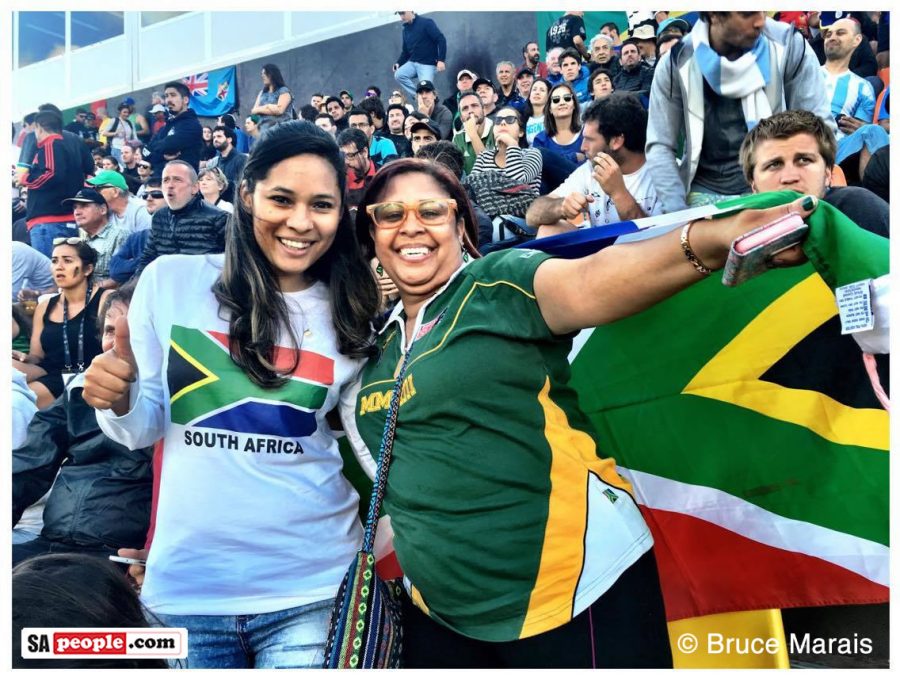
SA Sevens Win Olympic Bronze in Rio with Fantastic Fan Support
South Africa secured its fourth medal Thursday with SA’s Sevens team taking bronze after losing to Great Britain in the semi-finals and beating Japan in the bronze play-off. Their fans were there to cheer them on all the way – fully kitted and as passionate as the guys on the field. All photos below by […]
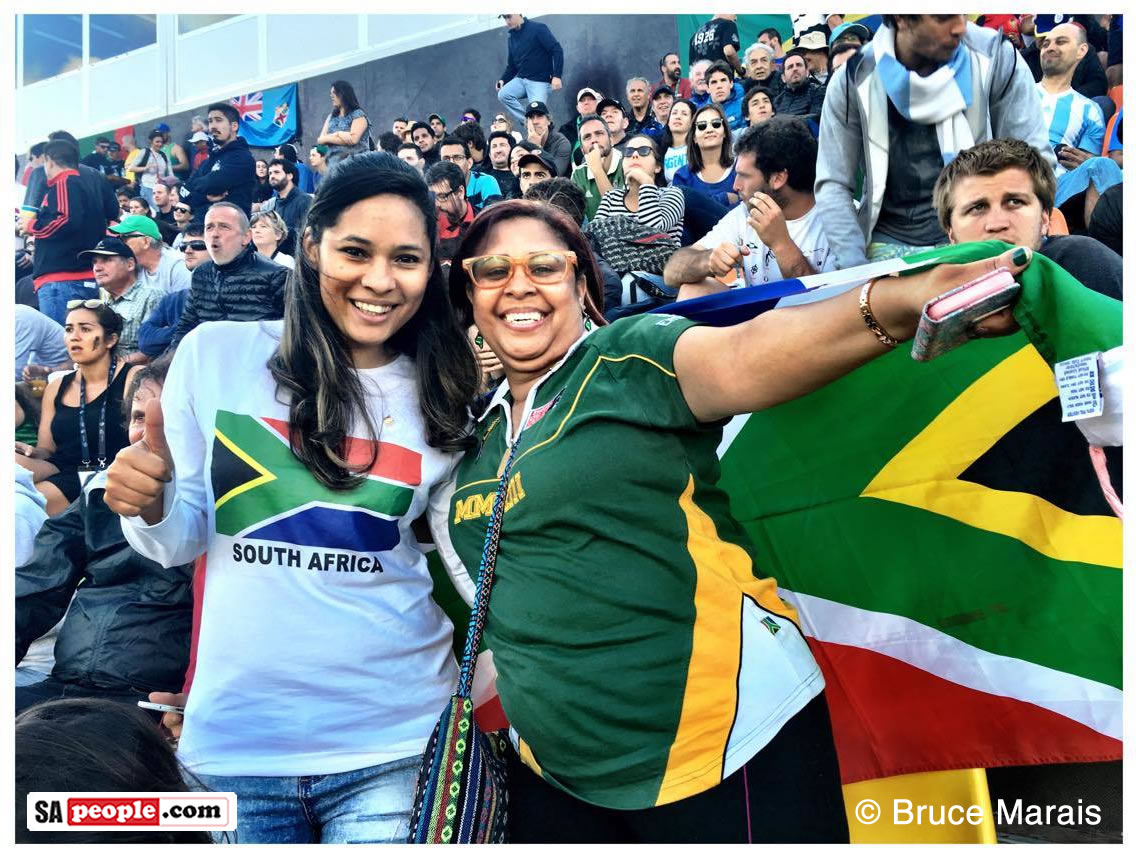
South Africa secured its fourth medal Thursday with SA’s Sevens team taking bronze after losing to Great Britain in the semi-finals and beating Japan in the bronze play-off. Their fans were there to cheer them on all the way – fully kitted and as passionate as the guys on the field. All photos below by BRUCE MARAIS. Text by GARY LEMKE.
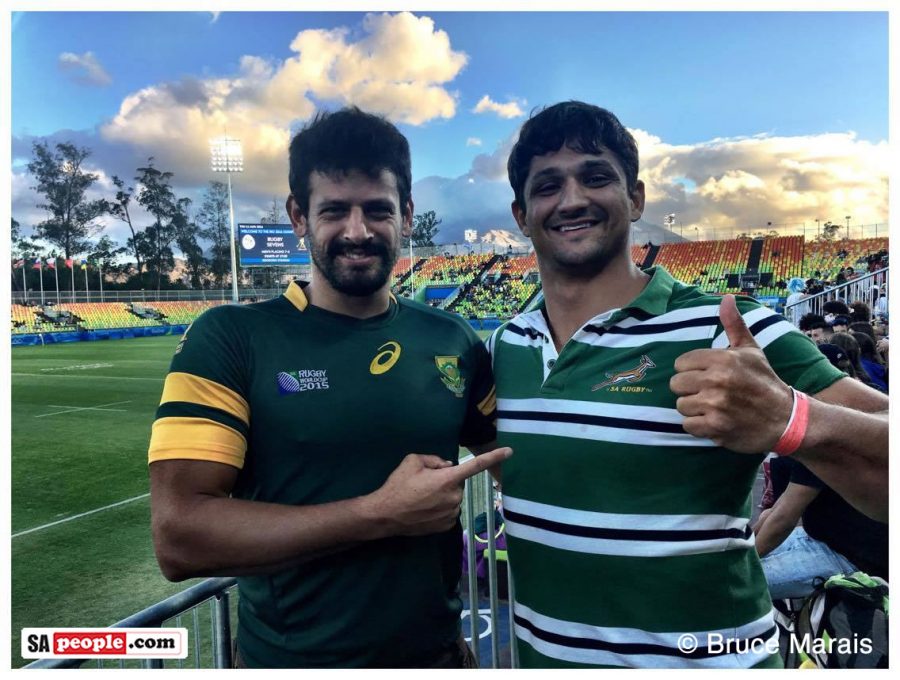
It must have been a tough few hours between that 7-5 surprise defeat to Great Britain at the Deodoro stadium and the bronze medal match against Japan, but Neil Powell’s men are a proud and professional unit and they got the job done in style, 54-14. And, when the dust had settled, a bronze is more than nine other countries, including New Zealand and Australia, achieved at the first rugby instalment at an Olympics since 1924.
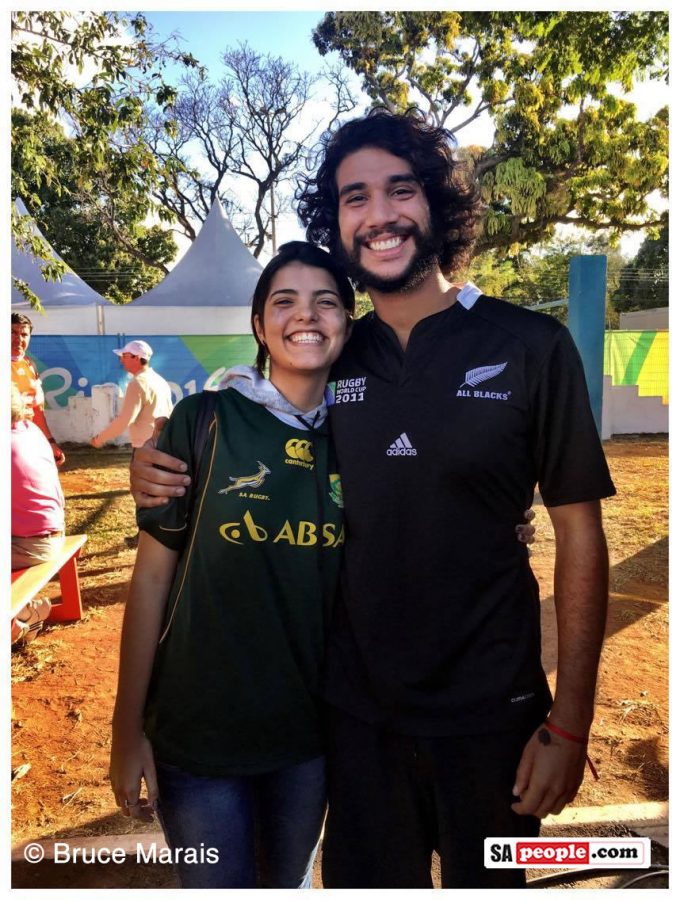
South Africa made their intentions known right from kick-off and within a minute they’d crossed the line – the third time this tournament they’d scored that quickly – after a sweeping movement downfield was finished off by Juan de Jongh, who gave Cecil Afrika an easy conversion.

With three minutes gone Rosko Specman received the ball from a scrum and he darted off, beating three defenders on a jinking run to the line. Again, Africa popped over the conversion and at 14-0 and with so much time to play – the match was 10 minutes each half – the early signs was that this could become a real statement of intent.
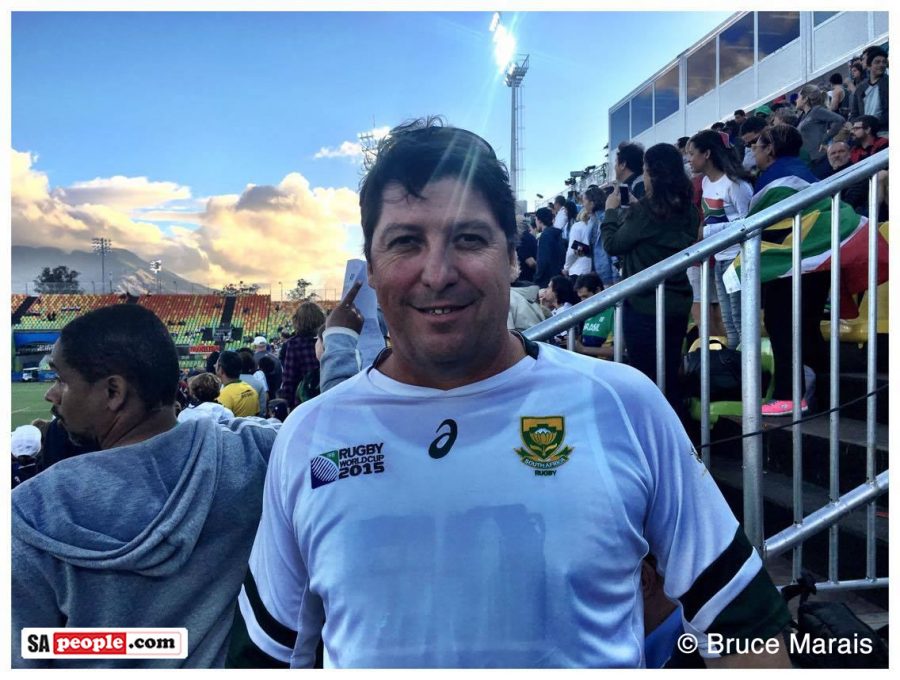
But, Japanese rugby is on they rise. as they say and they weren’t simply going to sit back and be humiliated, despite that 20-5 semi-final reverse to Fiji. And so it prove when their captain, the 1.88m, 98kg Lusaka Kuwazuru, crashed over for a try.
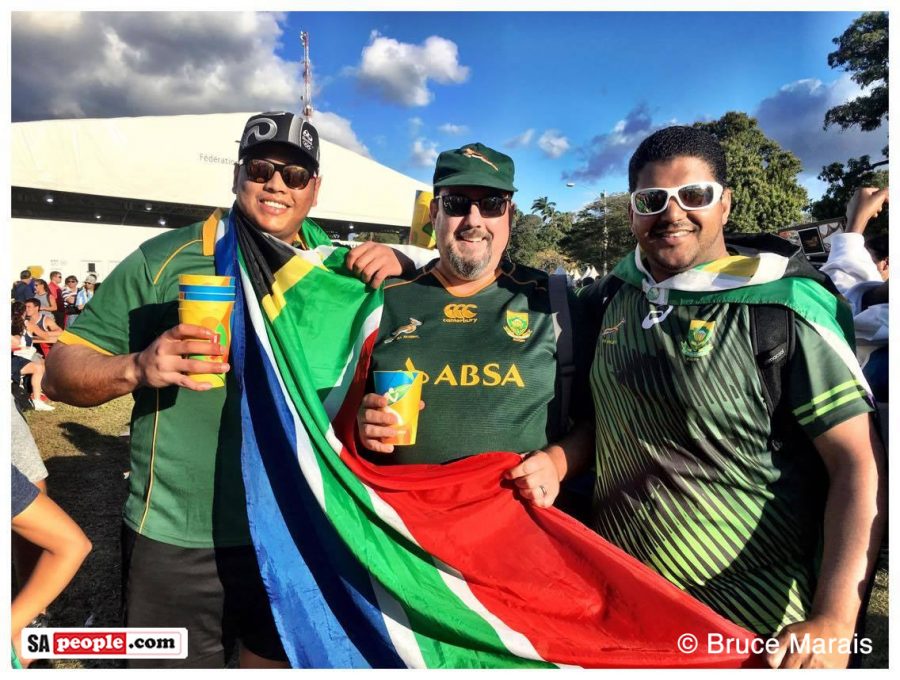
Japan swarmed all over South Africa from the kick off but the ball was worked to Dylan Sage on the right and he went on a rampaging run from deep inside his own 22, carrying the ball, and a couple of Japan defenders, over the halfway line, before Afrika continued the move and sent a long pass over to Specman on the left and he raced over, with Afrika making it 21-7 with the kick at the interval.
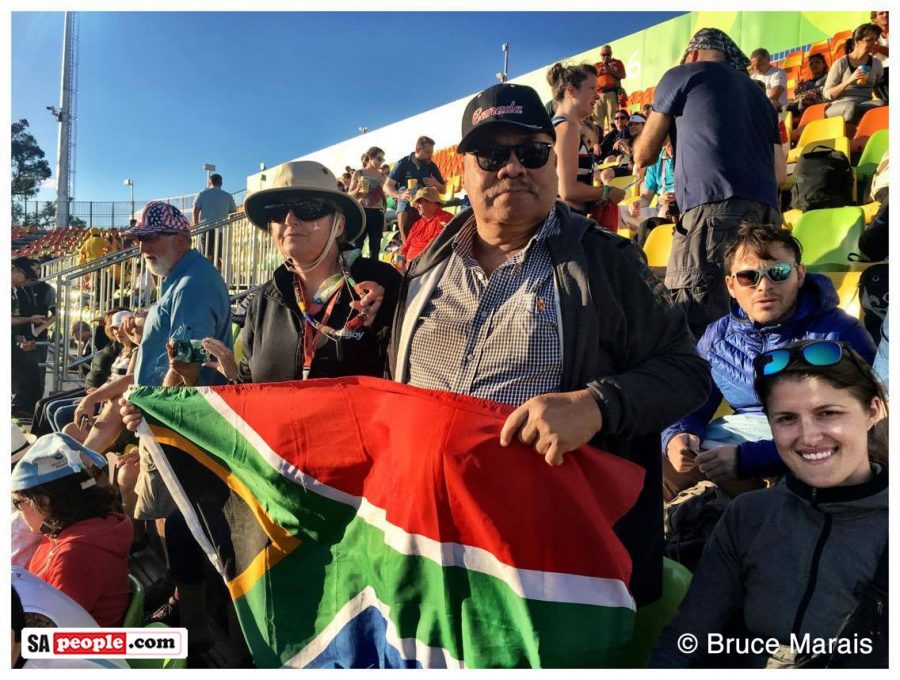
‘It’s nil-nil right, nil-nil’ barked captain Kyle Brown at half-time, no doubt ordering his men to start from scratch in the second half.
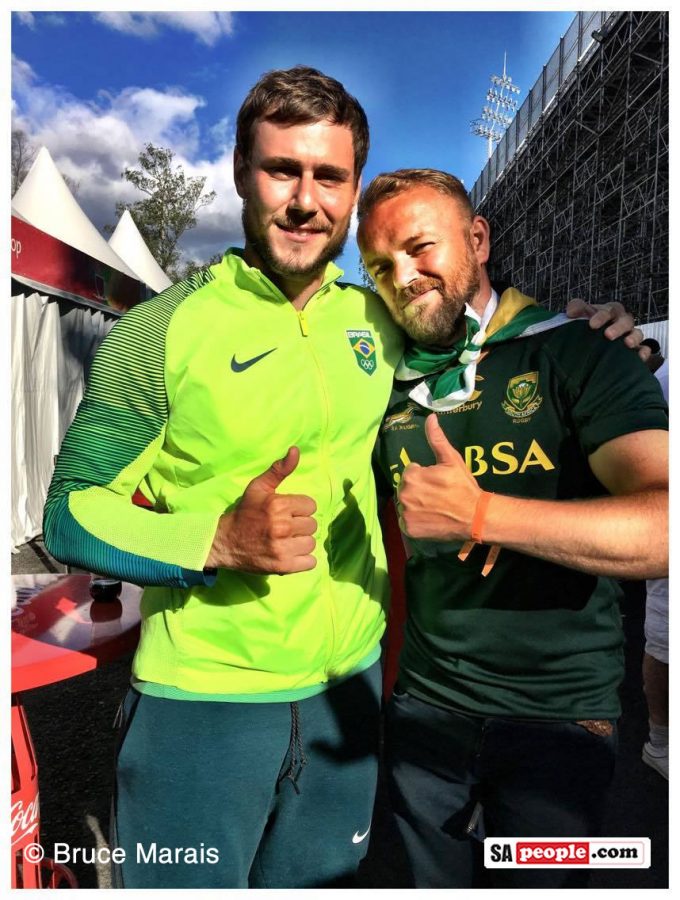
However, it was Japan who responded quickest, with Kazuhiro Goya finding a gap and sprinting fully 70 metres to the line and narrowing the gap to 21-14. The counter reaction was swift, first with Cheslin Kolbe making good ground, and the ball being offloaded to Afrika who found daylight on the halfway line and he ran in unopposed to convert his own try for 28-14.
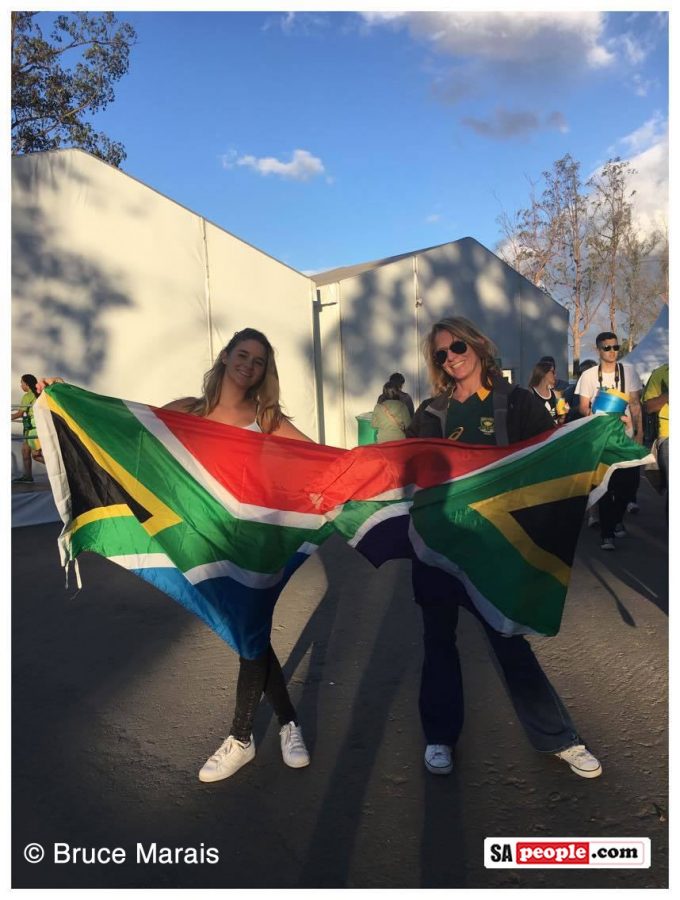
With five minutes left the ball Afrika picked up the ball at the base of a maul and went blind, running in a try in the corner from a long say out. He kicked the conversion – and how Powell and the whole of South Africa must have seen the irony of how different things could have been had he produced that kind of conversion kick against Great Britain.
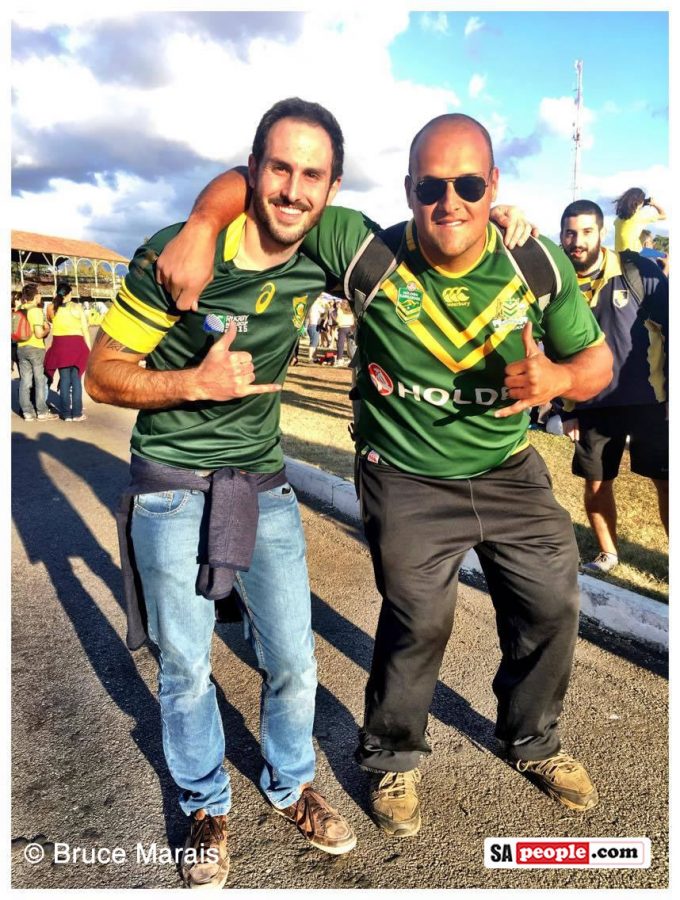
Now the floodgates had opened and the Japan resistance folded. Justin Geduld came on and got in on the act in the corner and this time Afrika hit the upright but the score had stretched to 40-14 with two minutes left.
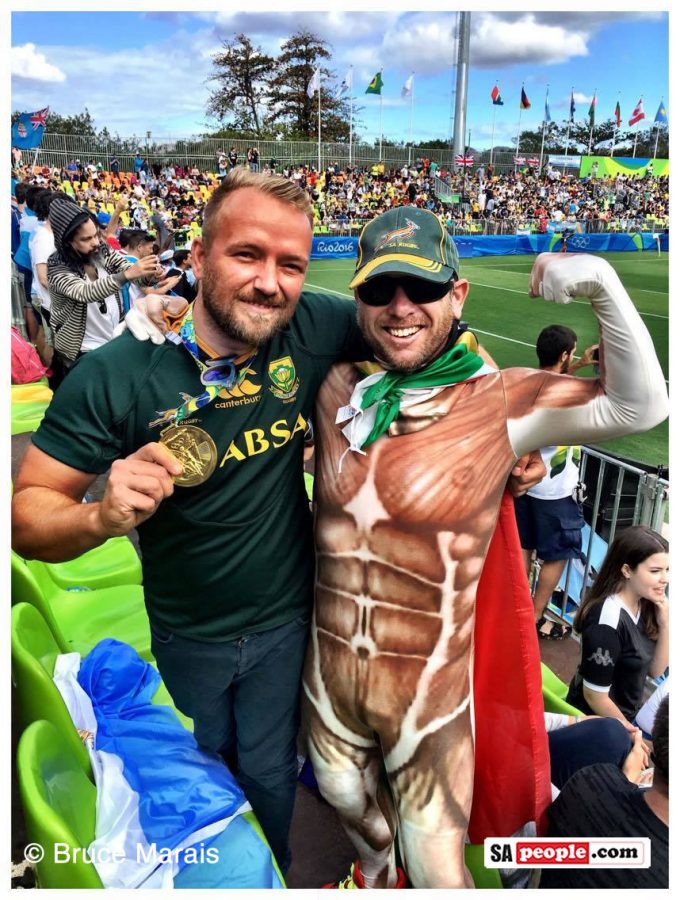
Thirty seconds later Specman broke clear and got in under the uprights forms third try and Afrika made it 47-14. South Africa won two penalties after the hooter but wanted more. And they got more with Kolbe finishing off for Afrika to convert and see them complete their first Olympic campaign in style.
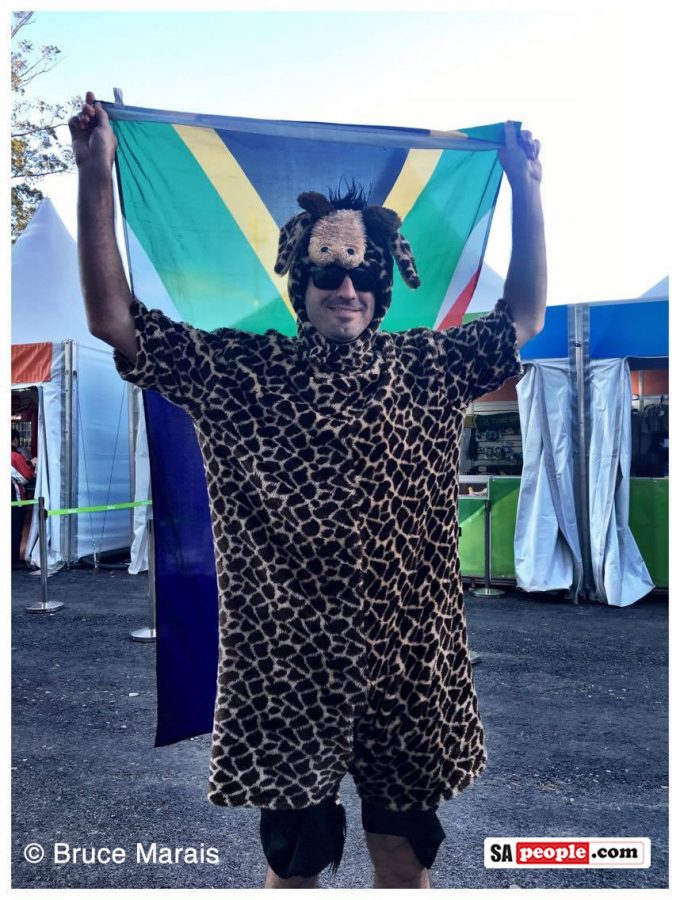
Mark Etheridge reports that earlier South Africa had gone down 5-7 to Great Britain in a tension-filled semi-final, after leading 5-0 at half-time through an unconverted captain’s try by Kyle Brown. But a minute after half-time Great Britain struck back as speedster Dan Norton stepped inside Dylan Sage to go over the posts untouched.
The try was converted by captain Tom Mitchell for a 7-5 lead and that’s the way it stood although it could have gone either way.
It wasn’t South Africa’s best performance of the Games as a few missed tackles, knock-ons and forward passes meant they never played with the freedom that marked some of their earlier Games.
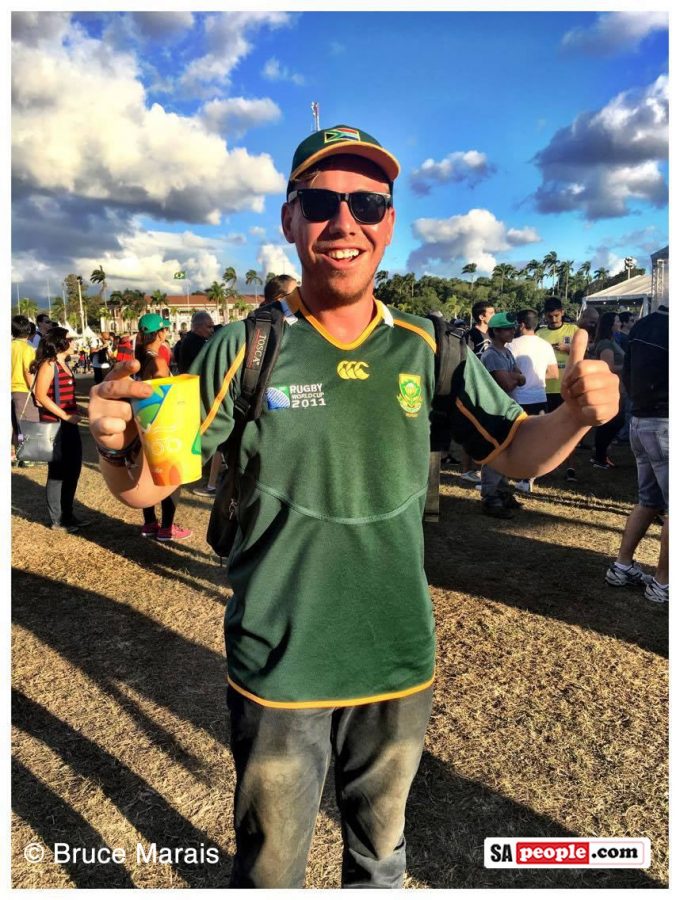
Story of the match was that Brown scored with less than two minutes gone after an extended period of attack had ground to a halt in the right corner. But the ball eventually spilt lose and Brown pinned his ears back and a diagonal run into the left hand corner saw him going over.
Afrika missed the conversion, which in the context of a low-scoring semi, could have been crucial.
Specman then brought the crowd to their feet with a mazy run before a wayward pass drift into touch and at the other end it was Great Britain’s No8 James Davies who nearly went all the way.
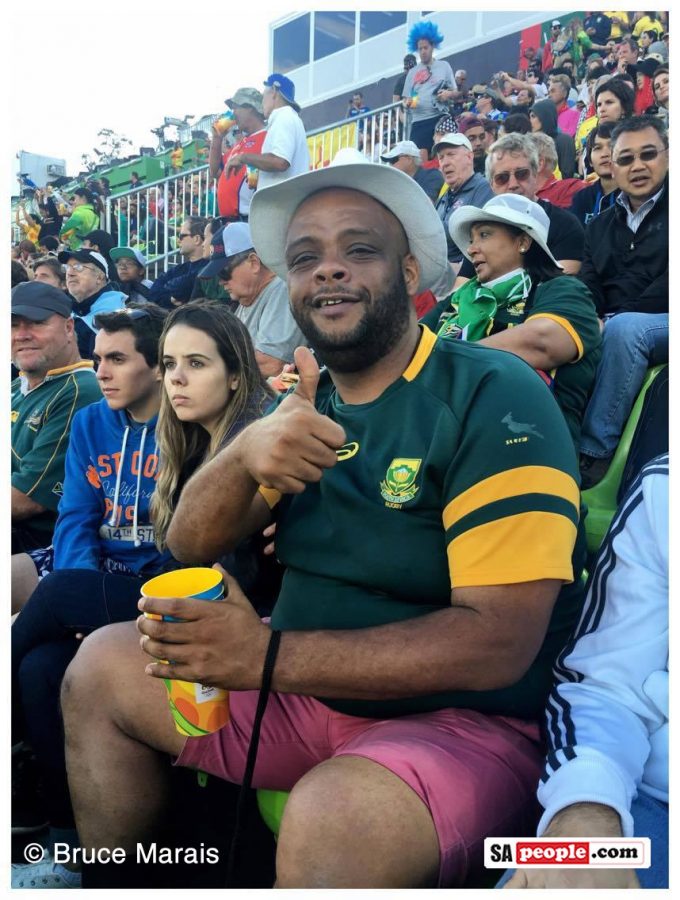
Half-time came and went and it was under a minute before Norton’s pace saw Great Britain ahead.
South Africa threw everything into attack with some concerted play in the final minutes and two penalties one left, one right, gave them options but the British defence held firm.
It seemed South Africa had finally cracked the defensive code when they had men out left but a long looping pass was forward and possession turned over.
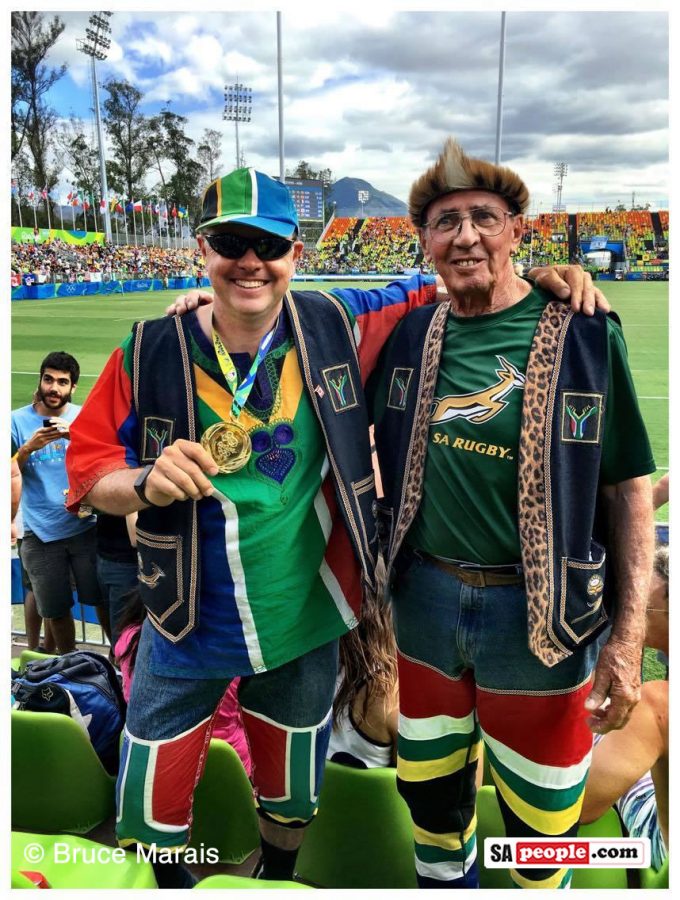
Afterwards, a disappointed coach Powell made no excuses: ‘Going into an Olympic semi-final you always know it’s going to be a dogfight and especially in the first half with the wind behind us I don’t think we made use of all our opportunites.
‘And in knock-out stages you don’t get that many opportunities so its crucial that you have to use them.’
Picture of Brown courtesy of Getty Images
– See more at: www.sascoc.co.za/